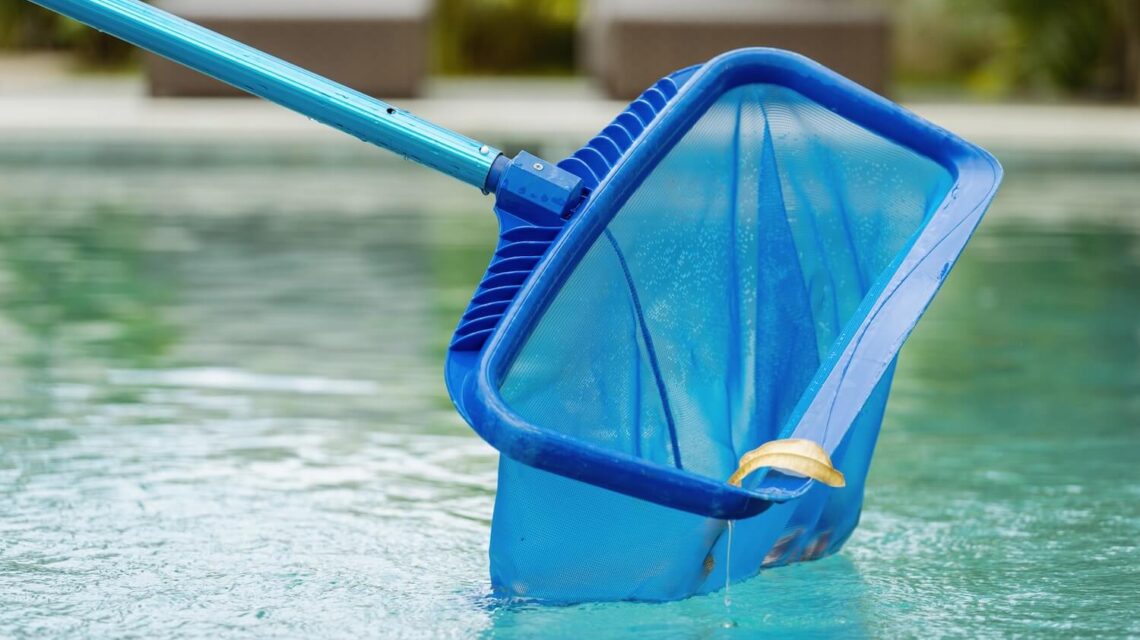Owning a pool is one of life’s great pleasures—whether it’s a place to relax on a hot day, enjoy fun times with family and friends, or host a weekend barbecue. However, with the fun comes the responsibility of keeping your pool clean, safe, and well-maintained. While basic upkeep like skimming debris and checking the pH levels may be part of your routine, there are times when your pool may require more than just a quick clean. Recognizing the signs that it’s time to call in professional pool cleaners can save you from costly repairs and ensure your pool remains a safe haven for swimming.
A pool’s condition can fluctuate throughout the year, especially with changes in weather, chemical imbalances, and environmental factors. But when certain indicators appear, it’s essential to address the problem before it spirals out of control.
Read on to discover the twelve key signs that your pool may be in trouble and in need of professional cleaning and maintenance.
1. Issues with Cloudy or Murky Water Indicators
Cloudy or murky pool water is often the first and most visible sign that something is wrong. When the water in your pool starts looking less than crystal clear, it’s an indication that something is affecting the water’s chemical balance, filtration, or overall cleanliness.
Cloudy water can be caused by several factors, including:
- Imbalanced chemical levels: Improper pH, alkalinity, or chlorine levels can lead to cloudy water. Too much or too little chlorine prevents the pool from properly killing bacteria and algae.
- Filtration issues: A clogged or malfunctioning filter may not be removing debris and contaminants effectively, leaving the water cloudy.
- Excessive debris: If leaves or organic matter are left in the water, they can decompose and cause murkiness.
Professionals use advanced tools like water testing kits, vacuums, and chemicals to properly adjust the pool’s pH levels and restore clarity. They’ll also inspect the filtration system to ensure it’s working optimally, as poor filtration is one of the main causes of cloudy water.
2. Strong Chemical Odor Issues
Pool water should not have a strong, overpowering chemical smell. A pool with a strong chemical odor, especially chlorine, may indicate that the water is out of balance.
While a faint smell of chlorine is normal, a pungent odor suggests that:
- Chloramine buildup: Chloramines are created when chlorine combines with organic materials like sweat, urine, and oils from your skin. These chloramines are ineffective at sanitizing the pool and can irritate swimmers.
- Excessive chlorine levels: Over-chlorination can lead to irritation of the eyes, skin, and respiratory system.
A professional pool cleaner will assess your chlorine and other chemical levels to restore balance, eliminating the strong chemical smell and making the pool safer for swimmers.
3. Signs of Algae Growth
Algae is a common nuisance for pool owners. Algae can grow quickly, turning your pool into a green, slippery mess.
Several types of algae can infest your pool, including:
- Green algae: The most common type of algae, typically caused by poor circulation or inadequate sanitization.
- Black algae: Dark, slimy patches that adhere to the pool surface, particularly in areas where the pool has been damaged.
- Yellow algae: Often found on the pool walls or floors, yellow algae thrives in warm, stagnant water.
Algae can be difficult to remove, especially if it’s had time to grow. A professional pool cleaning service will treat the pool with the appropriate algaecides and ensure the pool’s filtration system is working correctly to prevent further outbreaks. Experts also have the proper equipment, such as specialized vacuums, to eliminate algae from the pool’s surface and walls.
4. Inconsistent Water Levels Require Attention
If your pool water level is decreasing at an abnormal rate, it could be a sign of trouble. While some water loss due to evaporation is normal, significant or rapid drops in water levels could indicate:
- Leaks: Leaking plumbing, pool walls, or floor cracks can cause a loss of water. If you notice that your pool water level is consistently dropping even with no heavy use, it’s time for an inspection.
- Faulty pool equipment: Sometimes the pump or filtration system may be malfunctioning, causing water to be drained from the pool.
- Evaporation issues: In extremely hot or dry conditions, evaporation can cause water levels to drop, but this should not be excessive.
A professional pool cleaner can assess your pool for leaks, cracks, or any equipment-related issues. If necessary, they will use leak detection technology to pinpoint the source of the problem and recommend the appropriate repair.
5. Signs Pool Equipment is Not Working Properly
Your pool’s equipment—including the pump, filter, heater, and skimmer—plays a critical role in maintaining a clean and functioning pool. If any of these devices are malfunctioning, your pool’s water quality can deteriorate rapidly.
Signs that your pool equipment may need attention include:
- Low water circulation: If the water isn’t circulating properly, it can lead to dirty, stagnant water.
- Loud noises or strange sounds: A pump that is making unusual noises could be a sign that something is stuck or the motor is failing.
- Poor filtration: If your pool filter isn’t removing debris properly, you might notice a buildup of dirt and leaves in the water.
Regular maintenance is crucial for your pool’s equipment. A professional pool cleaning service can inspect and repair any malfunctioning equipment, ensuring everything is running smoothly and your pool remains clean.
6. Dirty Pool Walls and Tiles
Over time, the walls and tiles of your pool can accumulate dirt, grime, and mineral deposits. These buildups can be unsightly and, if left untreated, can lead to stains and even more severe damage. Common issues include:
- Calcium buildup: This forms hard, white scales along the edges of the pool and tiles. Calcium buildup can also clog your pool’s filter and cause equipment failure.
- Organic stains: Leaves, algae, and debris can stain the walls and tiles of your pool, making it look unsanitary.
If you notice stubborn buildup on your pool’s walls or tiles, it’s a clear sign that you need professional cleaning services. Pool experts use specialized brushes, chemical treatments, and pressure-washing techniques to restore the tiles and walls to their original appearance.
7. Unpleasant Pool Surface Texture
When the pool surface becomes rough, it can be a sign of mineral deposits, scaling, or damage to the pool finish. A rough texture may irritate the skin and could even lead to cuts or abrasions if left untreated. This roughness is often caused by:
- Calcium buildup: As mentioned earlier, calcium can accumulate on the pool’s surface, making it feel gritty or rough.
- Improper chemical balance: Low pH levels can cause the pool surface to become rough, while high levels of calcium hardness can also lead to scaling.
A professional pool cleaning service can perform an acid wash or other treatments to smooth the pool’s surface and restore its feel. This will not only make your pool more comfortable but also prevent further damage to the pool finish.
8. Unusual Pool Odors
An unpleasant or unusual smell emanating from your pool can be a sign of organic contaminants or bacteria. While chlorine helps eliminate bacteria and other pathogens, if the water becomes imbalanced, these microorganisms can proliferate, leading to unpleasant odors.
Common causes of foul-smelling pool water include:
- Decomposing organic matter: Leaves, algae, and other organic debris can decompose in the water, leading to foul smells.
- Bacteria growth: If the water isn’t properly sanitized, bacteria can grow, producing an odor.
A pool cleaning professional will properly sanitize your pool, remove debris, and address any odor-causing contaminants.
9. Unstable Water Chemistry Issues
Water chemistry is key to maintaining a safe and clean pool. Unstable water chemistry can result in a variety of problems, including:
- Skin and eye irritation: Poorly balanced pH or chlorine levels can cause irritation to swimmers’ skin and eyes.
- Algae growth and cloudy water: Improper chemical levels create an environment conducive to algae and bacteria growth, which leads to cloudy water and unsanitary conditions.
- Corrosion or scaling: If the water is too acidic or too alkaline, it can cause damage to the pool’s surfaces and equipment.
Pool experts can test your water chemistry and adjust the chemical levels to ensure they’re balanced and safe. Regular testing is essential to maintaining pool water that’s both clean and comfortable for swimmers.
10. Poor Water Circulation
Water circulation is crucial for maintaining clean, healthy water in your pool. Without proper circulation, debris will not be filtered out, and the water will stagnate. Common causes of poor water circulation include:
- Clogged skimmer baskets or filters: Debris buildup can block the flow of water.
- Pump issues: If the pump isn’t working properly, water will not circulate effectively, leading to stagnant water.
Professional cleaners can clean or replace the skimmer baskets and ensure the pump is functioning properly, promoting better water circulation and cleaner water.
11. Swimmer’s Itch or Skin Irritations
Swimmer’s itch and other skin irritations can be a sign that your pool water is contaminated with parasites or bacteria. Swimmer’s itch is caused by microscopic parasites that live in contaminated water and can burrow into the skin, causing rashes and irritation.
If you or your guests notice persistent skin problems after swimming, it could indicate that the pool is harboring harmful bacteria or other pathogens. A professional pool service can test the water for contaminants and sanitize the pool to make it safe for swimming.
12. Inconsistent or Poor Pool Heating Issues
A pool heater that isn’t working properly can make swimming uncomfortable, especially during cooler months. If you notice that the water temperature is inconsistent or the heater is not working at all, it could be due to:
- Thermostat or sensor issues
- Clogged filters or blocked pipes
- Malfunctioning heating elements
A professional pool cleaner can troubleshoot and repair your heating system, ensuring your pool remains a comfortable space year-round.
Conclusion
Pool maintenance is more than just a chore; it’s essential to maintaining a safe, clean, and enjoyable swimming environment. While routine cleaning can often be handled by homeowners, there are clear signs—such as cloudy water, algae growth, or malfunctioning equipment—that indicate it’s time to call in the experts. Professional pool cleaning services are equipped with the knowledge, tools, and experience to keep your pool in top shape. By addressing these issues promptly, you can avoid expensive repairs and enjoy your pool all season long. If you notice any of the above signs, don’t hesitate to contact a professional pool cleaning service. Your pool—and your peace of mind—will thank you.




